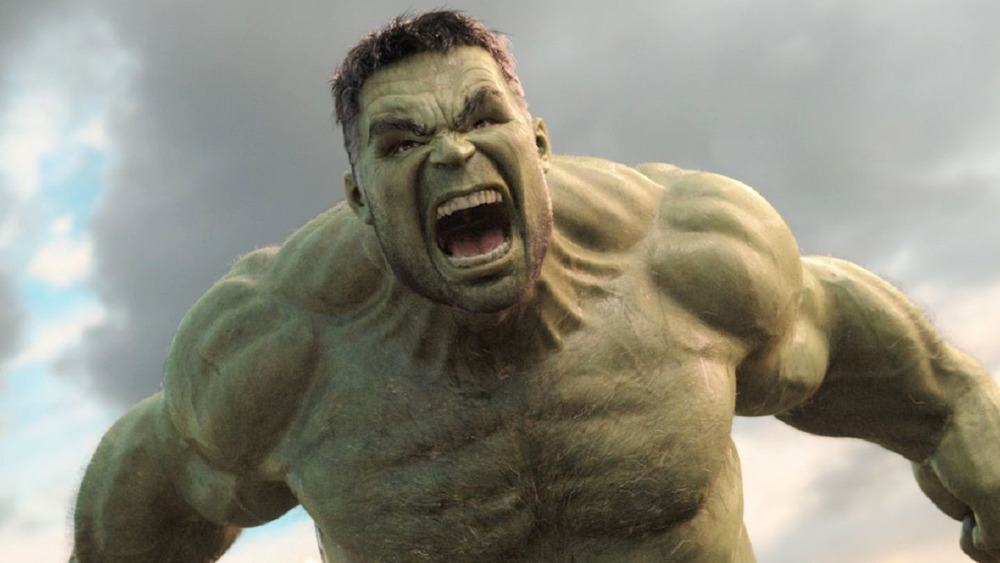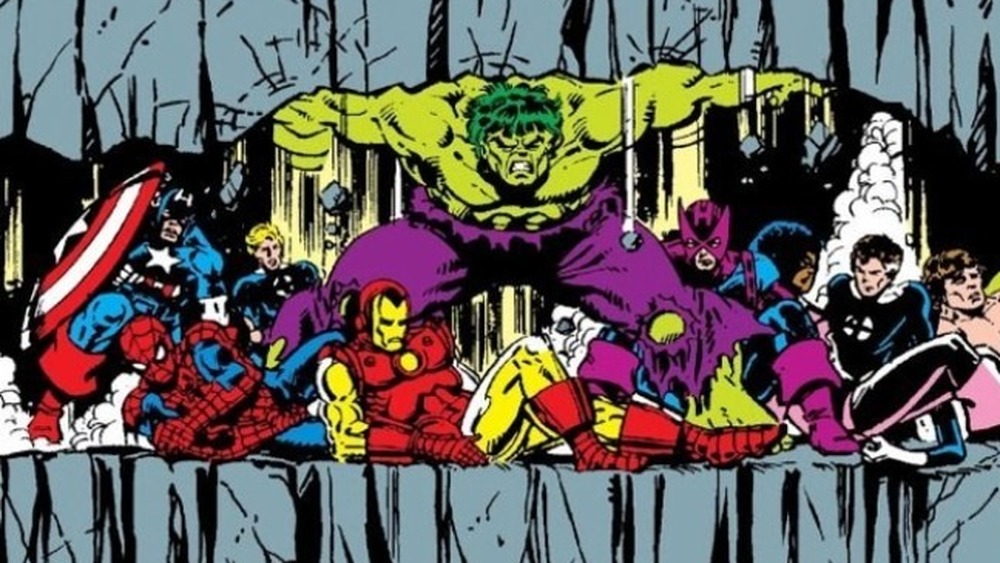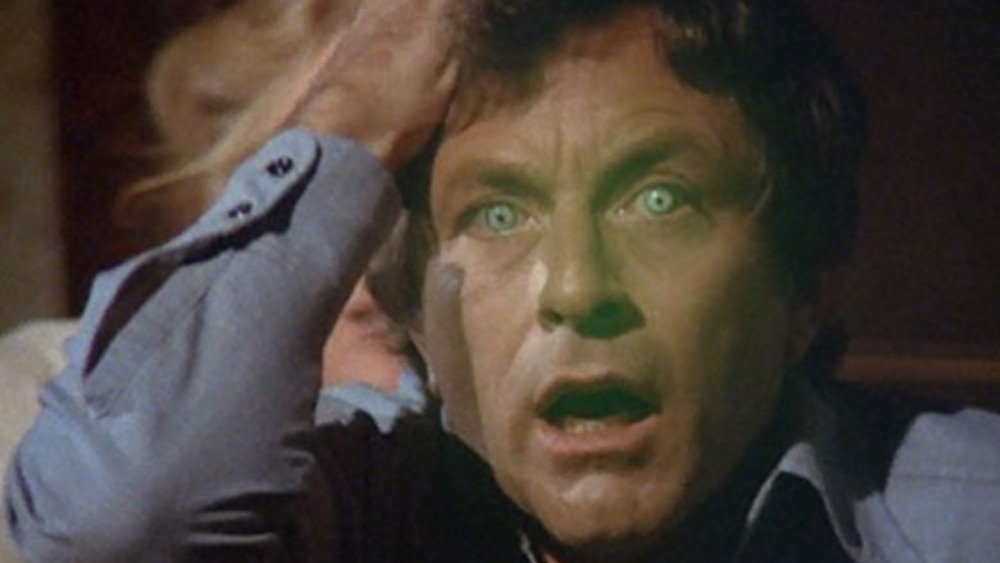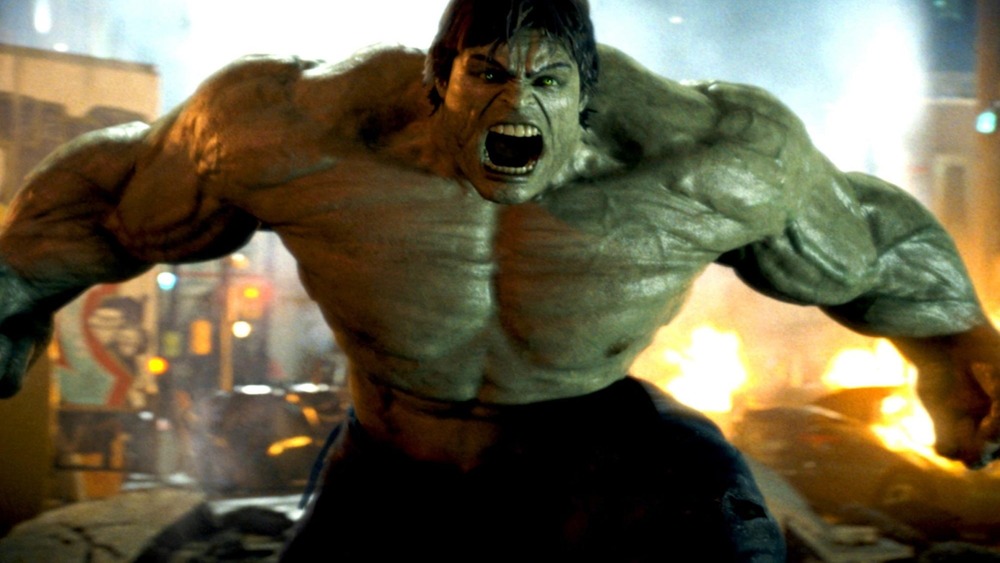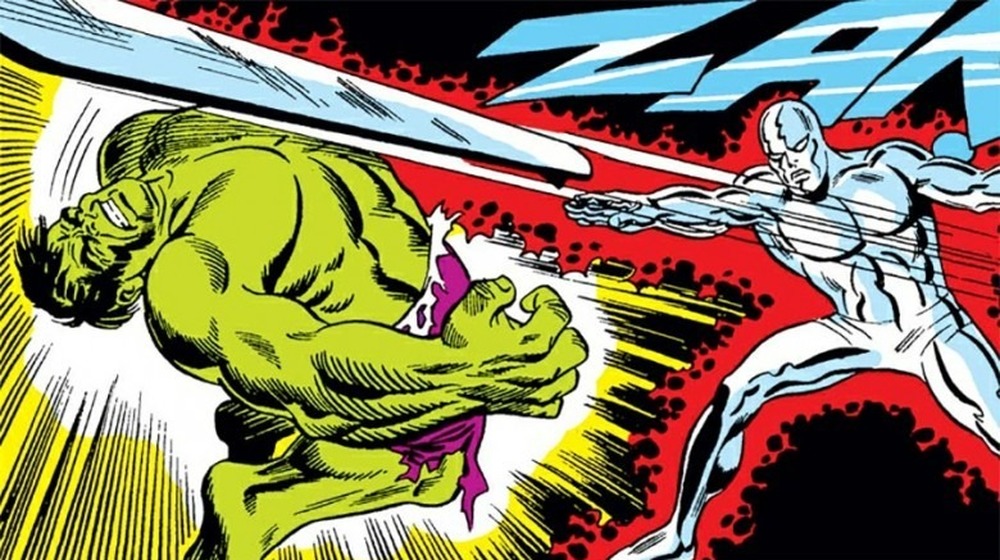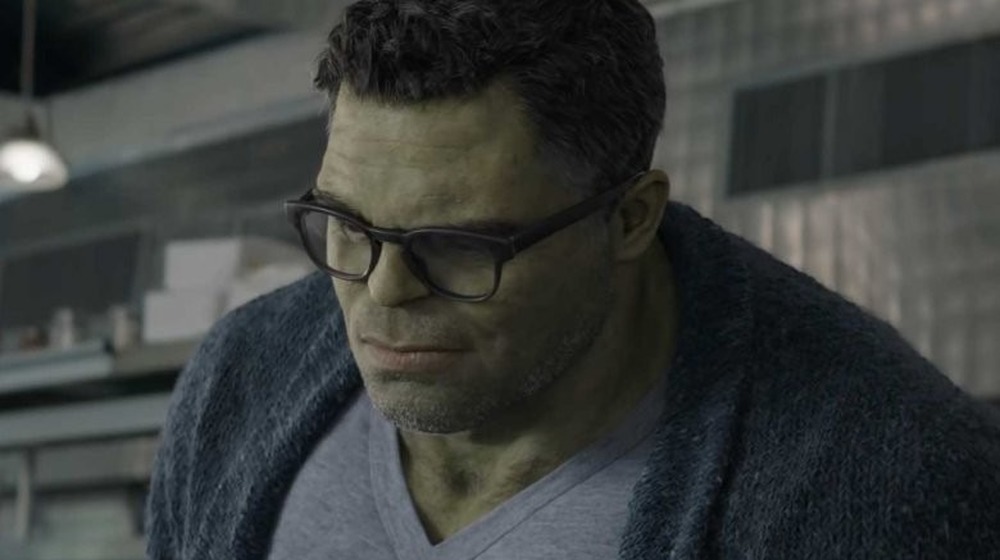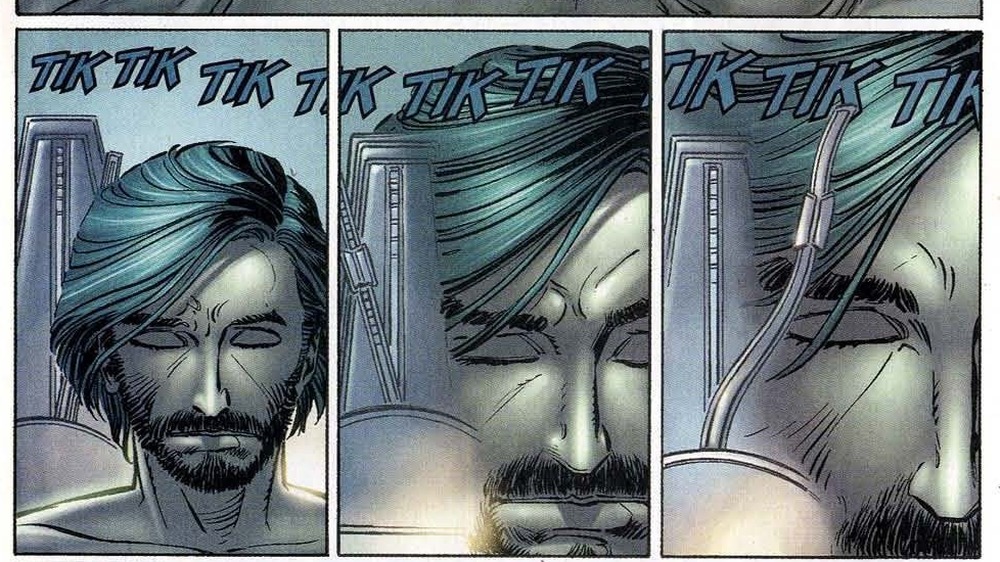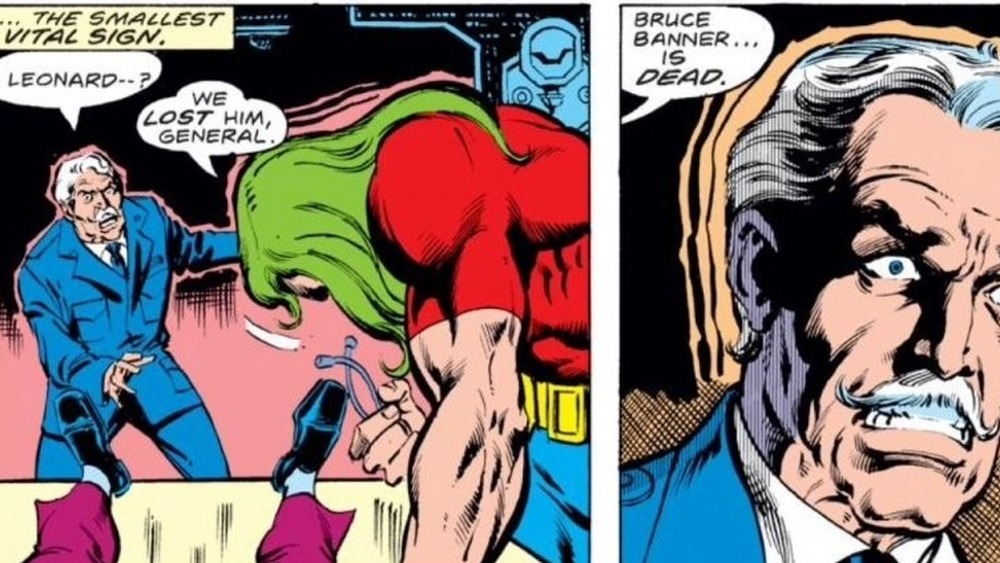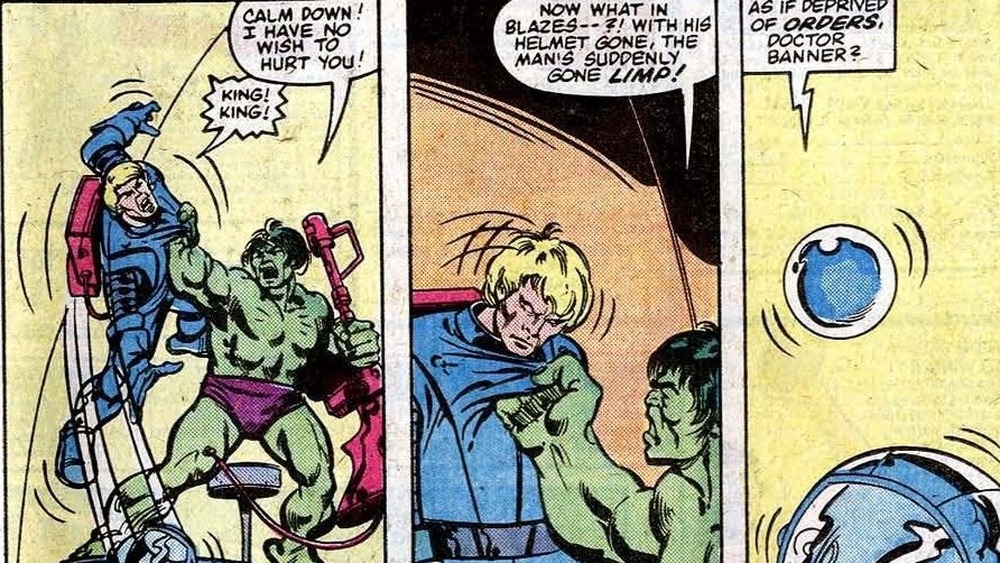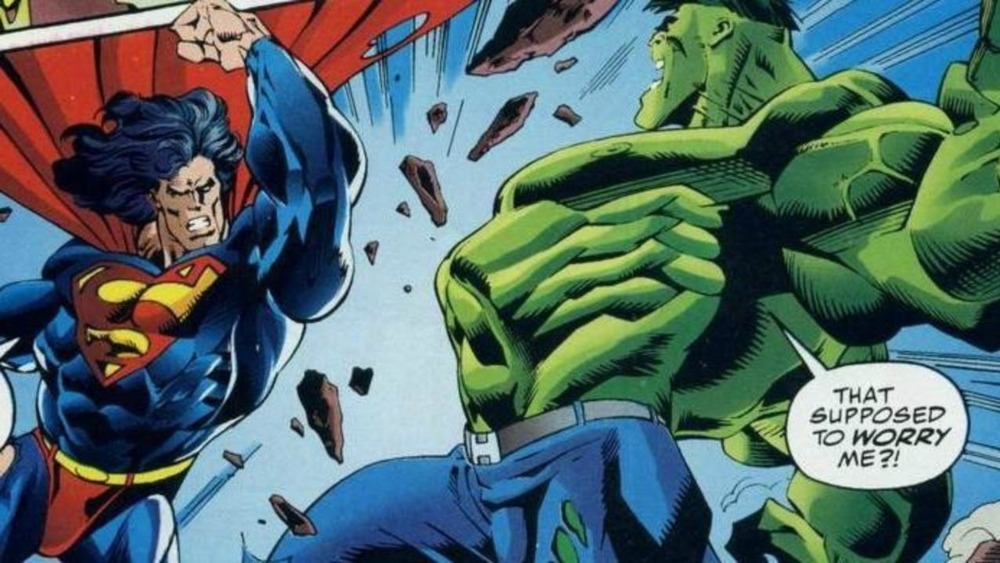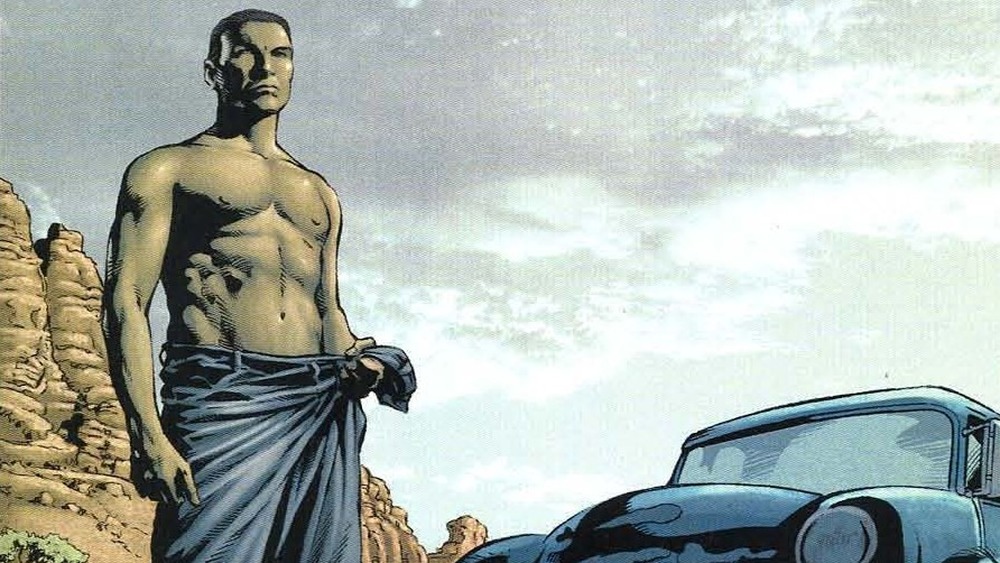Our Hulk Expert Answers The World's Most Difficult Hulk Questions
One of the cruel ironies of superhero comic books is that many of the medium's fans place a lot of importance on a stable continuity that never contradicts itself. But by their very nature, superhero comic book stories must change and often in ways that don't make logical sense. How do you explain, for example, that the comic book Tony Stark suffers his life-changing wound during the Vietnam War and is still avenging today, even though that war ended in the '70s? Not everyone can be frozen in ice like Captain America.
As a result, there are inevitable inconsistencies in the histories of Marvel's superheroes, and perhaps no marquee Marvel good guy has dealt with more of them than Bruce Banner and his beefy alter ego, the Incredible Hulk. Everything about them radically changes depending on what writer/artist team is handling them. Sometimes those changes are explained, sometimes they aren't. His personality, skin color, powers, and origin story have all changed over the decades. As a result, the Hulk who first emerged in 1962's Incredible Hulk #1 ain't the guy you're going to meet today, either in the movies or in the comics.
All those changes have led to a lot of questions that aren't easily answered without a good deal of Hulk knowledge under your belt. We thought we'd do our best to help by answering some of the toughest questions you might have about the Hulk.
Exactly how strong is the Hulk?
How strong is the Hulk? Well, in a very really sense, this can never be definitively answered.
In 1983's Official Handbook of the Marvel Universe #5, the Green Goliath's profile explains that in the immediate aftermath of any transformation from Bruce Banner to the Hulk, the man-monster "is capable of lifting (pressing) 90 tons." This is just below the 100-ton range displayed by many of Marvel's strongest heroes. The thing is, unlike those heroes, the Hulk keeps getting stronger as he gets angrier, and we've never seen a limit to his rage. The Official Handbook explains, "The Hulk has never apparently been provoked into demonstrating a maximum output of strength; there could be no upper limit. He has been known to lift well over 100 tons."
So, how strong is the Hulk? Potentially, as the more savage version of the Hulk likes to put it, he's "the strongest one there is."
And we need to remember that even stronger versions of the Hulk have shown up since that profile was published in 1983. We've since seen incarnations like the Mindless Hulk, the Professor Hulk, the Worldbreaker, and the Maestro, all of whom start off at an even higher level of strength than the version written about in 1983. While Thor, for example, has proven to be a match for most versions of the man-monster, in 2018's Immortal Hulk #7, the thunder god is taken out of the fight with a single punch from the Hulk.
Why was he named David instead of Bruce in the '70s TV show?
These days, there's no shortage of live-action Marvel TV shows, but back in the late '70s, The Incredible Hulk stood alone. Starring Bill Bixby as Dr. Banner and bodybuilder Lou Ferrigno as his green-skinned alter-ego, The Incredible Hulk was a hit. There are a lot of differences between the show and the comics, however, and one of the biggest is that Bill Bixby doesn't play Dr. Bruce Banner — he plays Dr. David Banner.
Why did they change his name? Well, the most widely spread story also seems to be the strangest. The late Stan Lee said a number of times, including in a 2014 issue with the magazine Back Issue, that TV executives felt the name Bruce somehow sounded gay. Lou Ferrigno said the same thing in an interview with CBS, along with adding it was the most "absurd, ridiculous" thing he'd ever heard.
The Incredible Hulk's showrunner Kenneth Johnson, on the other hand, said something different. Speaking to IGN in 2012, Johnson pointed to the comic book trope of using alliteration when giving characters their names. Perfect Marvel examples of this include Peter Parker, Stephen Strange, Reed Richards, and of course, Bruce Banner. Johnson said he didn't want his show to be considered "comic book-y," and so he changed Banner's name to undo the alliteration.
Regardless of which version you believe, you have to admit Johnson's story makes sense, particularly with all the other differences between the show and the source material.
Why aren't there any new solo Hulk movies?
The generally accepted story regarding why we've never seen a sequel to 2008's The Incredible Hulk is that it's all about the complex world of film rights. In 2015, for example, Mark Ruffalo seemed to back this up by telling Collider that while Marvel Studios could continue using the Hulk in Avengers films, they didn't have the rights to use him in his own solo movie.
According to Mark Hughes of Forbes, however, film rights have little if anything to do with the lack of a sequel. Marvel, Hughes clarifies, does have the rights to make a solo Hulk movie. The rights reverted back to Marvel in 2005 after Universal Studios declined to make a sequel to Ang Lee's 2003 Hulk. But Universal retains right of first refusal to distribute the film. Hughes points out that having another studio distribute their films — Paramount — didn't stop Marvel from making the first two Iron Man films, Thor, or Captain America: The First Avenger. Nor did working with another studio stop the agreement Disney has with Sony over Spider-Man's inclusion in the MCU.
Hughes claims the real problem is that Disney isn't confident about another Hulk movie being a hit. Both of the live-action Hulk flicks were financial disappointments, and the production quality necessary makes budgeting a solo film a dicey idea unless Disney is sure they're going to strike gold.
Why does the Hulk's skin color change?
The Hulk wasn't green originally — he was gray. His color changed to green in Incredible Hulk #2 with no explanation. So what happened there?
There's an urban legend that the Hulk was supposed to be green in his first appearance, but the printer messed up, and he came out gray. However, the Hulk's co-creator Stan Lee has said many times this isn't the case. The Hulk was supposed to be gray in the first issue, but the finished product simply didn't look good. In particular, Lee said the character looked like a different shade of gray on every page. So the decision was made to change his skin color to green.
The gray Hulk returned to the comics in the mid-'80s, and it renewed his dwindling popularity. The gray Hulk doesn't have the green Hulk's signature monosyllabic "Hulk smash!" speech. Instead, he's portrayed as thuggish but not stupid. There was both a gray Hulk and a green Hulk when Peter David began his 12-year run writing Incredible Hulk, and he chose to focus on the gray Hulk because — as he writes in his foreword to the 2005 collection Hulk Visionaries: Peter David, Vol. 1 — he sees dialogue as his "strong suit," which wouldn't be served by the green Hulk's caveman catchphrases. It was David's run that saw the Hulk climb back to Marvel's marquee, though eventually Hulk would go green again.
Of course, then there's the Red Hulk, but that's a different guy entirely.
Can anyone beat the Hulk?
You'll often hear comic book fans get into the subject of which character would win in a fight, especially when it comes to the Hulk. The truth is, however, all you have to do is look at the comics to realize that the question should never be "who would win" but "who will win?" In other words, are there heroes and villains in Marvel who can defeat the Hulk? Absolutely, and it's happened. However, there are few Marvel characters who've defeated the Hulk who haven't — in different circumstances — been utterly owned by him.
Perhaps the Marvel hero who's been shown to do the best against the Hulk is the Silver Surfer. The former herald of Galactus knocks the Hulk out in 1967's Tales to Astonish #67, and the Hulk can't put a dent in him when they clash 30 years later in Silver Surfer #125. But when they battle during "Planet Hulk," the green guy leaves Surfer unconscious in a new crater on the floor of Sakaar's arena.
As for Black Bolt, leader of the Inhumans, he dominates the Hulk in two early battles but later becomes the subject of Hulk's first victory in 2007's World War Hulk #1. Other heroes and villains who've defeated the Hulk but have likewise been thrashed by him include the Thing, Wolverine, Iron Man, Thor, the Abomination, and Juggernaut. So, can he be defeated? He absolutely can. But you better hope he forgets your name afterward.
Why does the Hulk's intelligence level change?
In 2019's Avengers: Endgame, MCU fans got their first look at the Professor Hulk — a version of the character with all of Bruce Banner's intelligence housed in the Hulk's monstrous body. And when we explore the comics, there are even more versions of the Hulk with varying levels of intellect. There's the Mindless Hulk, who doesn't even have enough brainpower to form the Hulk's trademark monosyllabic speech, there's the crafty gray-skinned Joe Fixit, and there's the Worldbreaker Hulk. He's the version who appears in World War Hulk and seems just as intelligent as Bruce Banner but with a different speech pattern and personality traits.
The different Hulks emerging from Bruce Banner have differing levels of intellect because they are all separate personalities. In 1985's Incredible Hulk #312, we learn Brian Banner — Bruce Banner's father — subjected both Bruce and his mother to severe physical abuse during Bruce's childhood, eventually going so far as to beat Bruce's mother to death in front of him. Because of the trauma he suffered, Bruce developed dissociative identity disorder or, as it was more commonly known when Banner was diagnosed with it, multiple personality disorder.
All of the different versions of the Hulk, then, represent different parts of Banner's splintered psyche. The Savage Hulk, for example, is the childhood he was denied, while the Professor Hulk represents Banner's intellect and rationality.
What happened to the Hulk stories that inspired the 2008 movie?
Much of 2008's The Incredible Hulk was inspired by a controversial but acclaimed era of the Hulk's comics. Bruce Jones took over writing duties on the comic in the early 2000s, and his storytelling style rubbed a lot of fans the wrong way. For one, in Jones' tales, you hardly ever saw the Hulk in the comic's interior. While Jones' first issue was Incredible Hulk #34, the first time you actually got to see a clear image of the Green Goliath during his run was four issues later in Incredible Hulk #38. Jones also played fast and loose with continuity. For example, he brought the Absorbing Man into the comic as a villain, even though the character had reformed and was regularly appearing in Thor at the same time.
But a lot of readers enjoyed Jones' new take on the character, including the makers of 2008's The Incredible Hulk. Much of the movie is inspired by Jones' run. Bruce Banner's meditation and mind exercises with the aid of a metronome come straight from Jones' work, as does the anonymous correspondence between Mr. Green and Mr. Blue.
Apparently, once Jones left Incredible Hulk, it was decided he'd been a little too free with continuity. Jones was replaced by Peter David whose first storyline, "Tempest Fugit," created a fascinating retcon. The story established that some of Jones' run happened, but some of it was an illusion created by the mystical villain Nightmare. However, the story didn't specify what did or didn't happen, leaving it up to the reader.
Can the Hulk die?
In 2018, Al Ewing launched Immortal Hulk, and the name itself may have you asking whether or not the Hulk can die. The short answer is yes, he can die, and he's died many times. But he always finds a way to come back.
With an arrow specially designed for the task, Hawkeye kills Bruce Banner in 2016's Civil War II #3. He returns from the dead in 2018's Avengers #684, and Immortal Hulk springs from that resurrection. We then learn that when the Hulk — or any of Marvel's gamma-irradiated heroes or villains — dies, he goes to a place even deeper in the multiverse than Hell, somewhere called the Below-Place, which is ruled by the evil One Below All. The One Below All seeks to use the gamma-irradiated characters of Marvel to utterly destroy everything, and so it will manifest Green Doors through which the Hulk and other gamma characters may return to the world of the living.
We should also note that long before Immortal Hulk, the question of whether or not the Hulk could ever be killed for good seemed iffy. In the dystopian future miniseries Incredible Hulk: Future Imperfect, he's one of the only superpowered Marvel characters left alive, known as the villainous Maestro. And even after being caught in a nuclear blast — with nothing but bones left — he's not fully dead and is able to assault the Hulk of the present by possessing the mystical armor of the Destroyer.
Did the Hulk comic plagiarize a popular short story?
The late speculative fiction writer Harlan Ellison alleged the makers of The Terminator lifted parts of their story from his script for the 1964 Outer Limits episode "Soldier," which in turn was adapted from Ellison's 1957 short story "Soldier from Tomorrow." But even before he targeted The Terminator for alleged plagiarism, Ellison locked horns with the Hulk for the same reason.
As Brian Cronin outlines in his "Comic Book Legends Revealed" column for CBR.com, 1983's Incredible Hulk #286 blatantly steals from Ellison's story. The comic opens on a dystopian 41st-century Earth where a soldier receiving orders via his helmet fights a never-ending war without a clear purpose or goal. He's eventually blasted to the present day where he meets the Hulk. After fans noticed the glaring similarities between the story and Ellison's, Marvel printed an apology, admitting they "forgot" to print an acknowledgment to Ellison.
Years later, Jim Shooter — Marvel's editor-in-chief in 1983 — wrote about what really happened on his website. The day the comic hit stands, Harlan Ellison called Shooter, and he wasn't happy. Shooter writes that he immediately admitted to Ellison that Marvel was in the wrong. Ellison agreed to not bring the lawyers into it in exchange for three things. He wanted the same money Bill Mantlo — Incredible Hulk #286's writer — was paid, "an acknowledgement, plus a lifetime subscription to everything [Marvel Comics] ever published." That last part just might make any Marvel Comics fan hope the company plagiarizes their work at some point.
Hulk vs. Superman ... who wins?
One of the most common cross-company "who would win?" match-ups is between Marvel's Green Goliath and DC's Man of Steel, Superman. In 1996, the companies got together to answer this and a whole bunch of other "who would beat who" questions in the four-issue miniseries DC vs. Marvel, (or Marvel vs. DC, depending on who you talk to).
After collaborating to easily take out the DC villain Metallo in DC vs. Marvel #3, Superman and the Hulk face off, and the victor isn't a mystery for long. In a three-page battle, Superman decisively knocks out Professor Hulk and buries him under rubble.
Two things should be remembered about the battle's outcome. First, like four of the other battles in DC vs. Marvel, the outcome of the clash wasn't determined by the writers but by the fans. In the lead-up to the miniseries, readers were invited to submit votes for the winners. Second, it's not clear whether or not DC vs. Marvel can be considered canon as most DC/Marvel crossovers are treated as taking place in alternate realities separate from either company's prime continuity.
Regardless, it's clear Superman would have a lot of advantages against the Hulk. His super speed, heat vision, and flight could all help to turn the tide. On the other hand, the Hulk has defeated characters with powers comparable to Superman's. He decimates the alien powerhouse Gladiator in Incredible Hulk Annual '97 and easily defeats the Squadron Sinister villain Hyperion in 1974's Defenders #13.
Why don't Bruce Banner's pants rip off when he changes into the Hulk?
As deeply invested Hulk fans can confirm, it's more than common for someone to learn of their chosen fandom and immediately muse, "I always wanted to know why that guy's pants don't come off when he changes into the Hulk." Believe it or not, there's a very simple answer to the question — because if his pants came off, he'd be naked.
Which isn't to say that some writers and artists haven't played a little bit with this question. In the climax of 1996's Onslaught: Marvel Universe #1, many of Marvel's heroes, including Bruce Banner, are believed to have sacrificed themselves to defeat the powerful villain Onslaught. In truth, they're transported to another world — dubbed the "Heroes Reborn" world — where their histories reboot. In the "Heroes Reborn" comics, along with other differences, Bruce Banner does often lose his pants when he transforms into the Hulk. The comics stay kid-friendly, however, by simply adding shadow to more sensitive areas.
In some cases, Banner has been shown to prepare for the change by getting himself a pair of "Hulk-ready" pants. We see this at the end of 2003's Incredible Hulk #53. Knowing he's about to clash with his old enemy the Abomination, Banner puts on pants large enough that he has to hold them to keep them from falling around his ankles.
